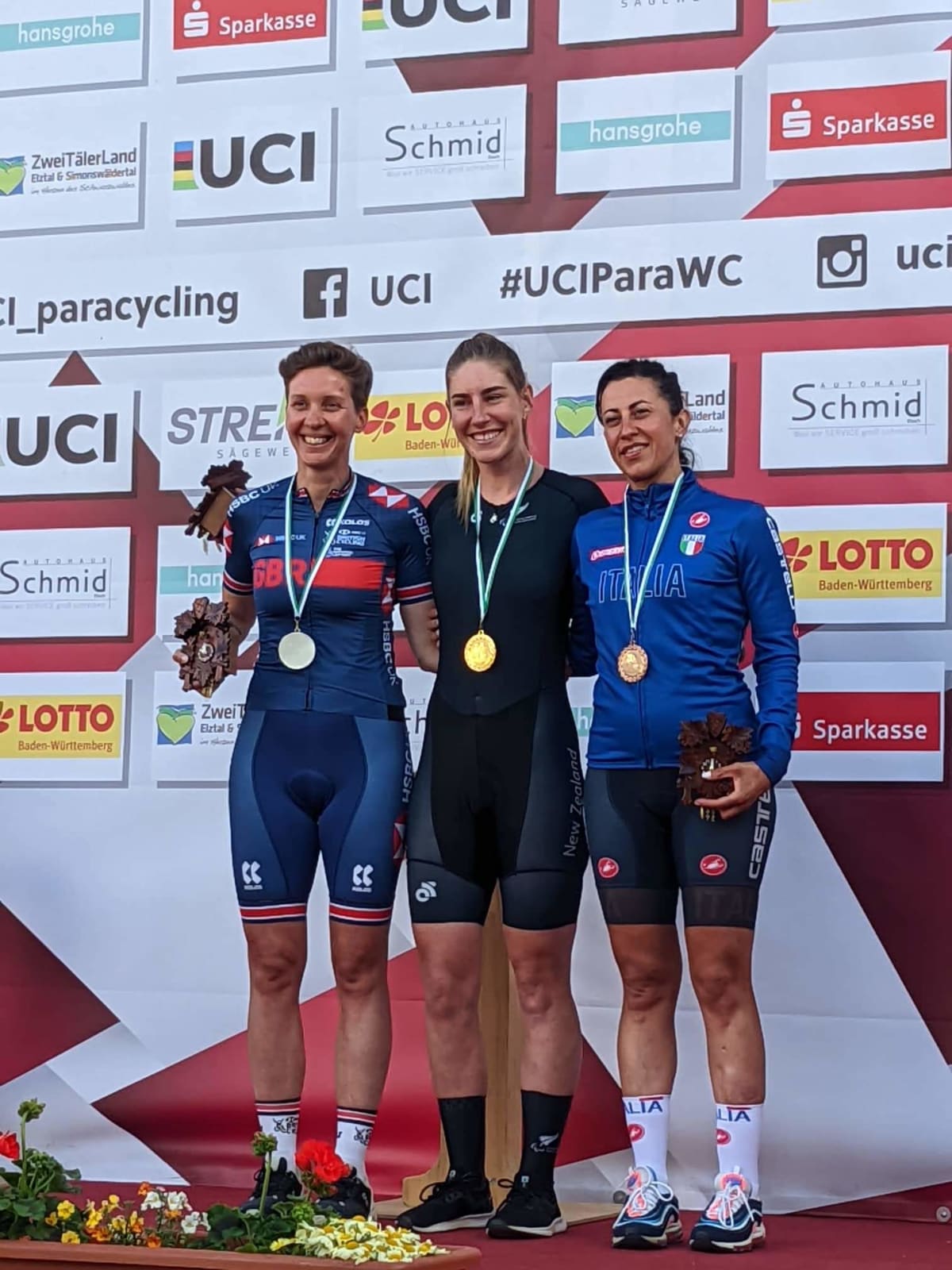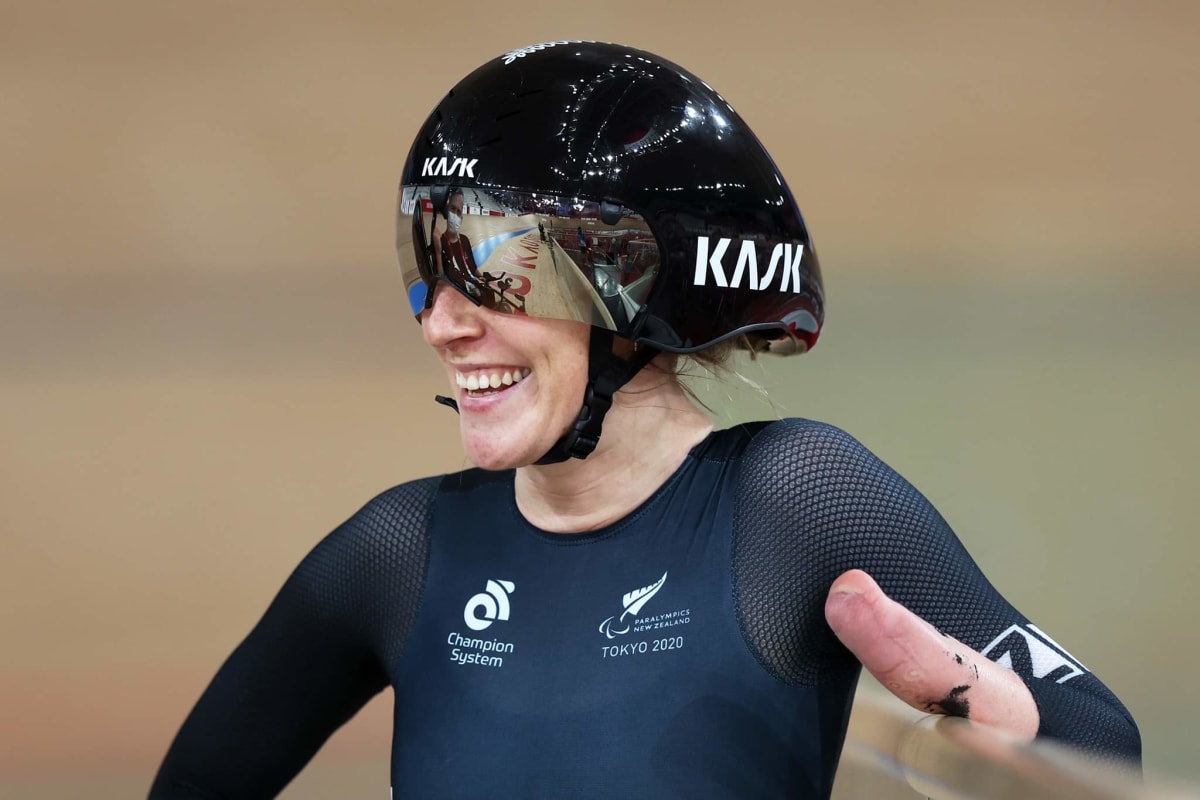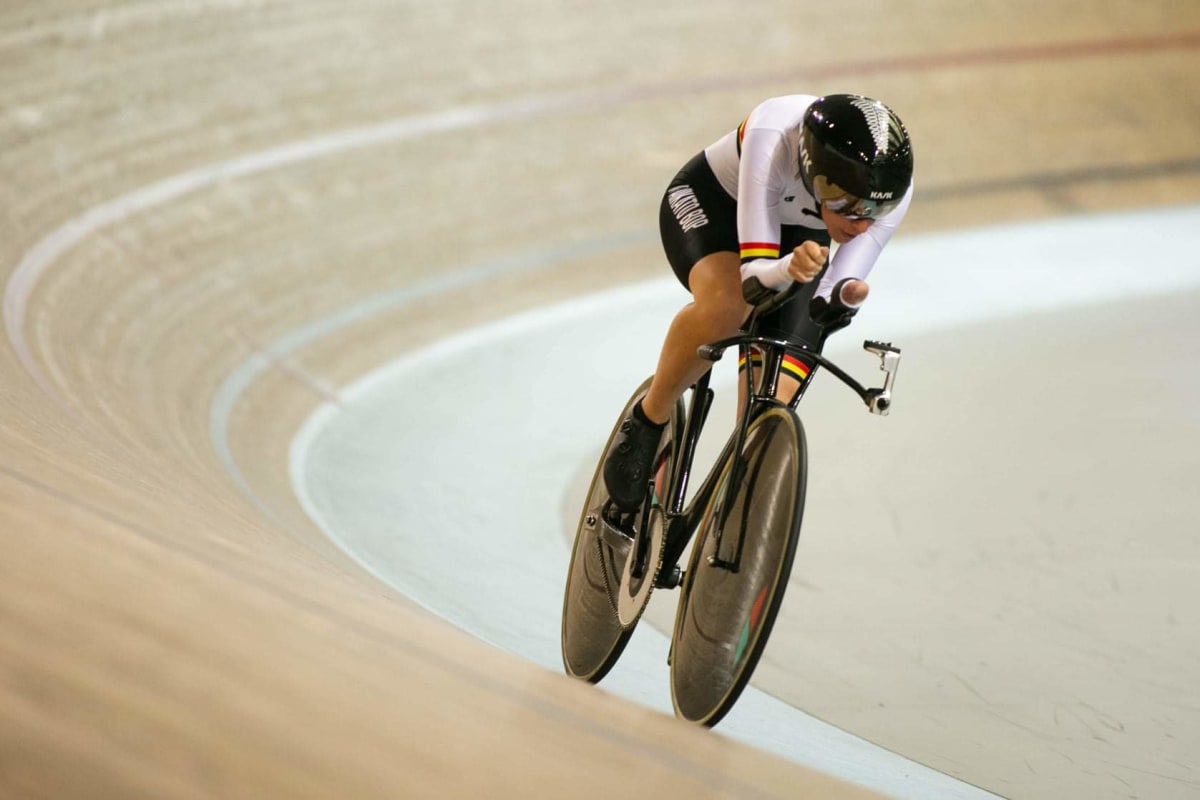
New Zealand's latest World Cup champion, Para cyclist Nicole Murray had a long, uncomfortable wait before discovering she could stand on top of the dais for the first time, she tells Merryn Anderson.
After the ride of her life, Nicole Murray was left in the dark as to whether she'd just won World Cup gold.
When the Kiwi cyclist finished the C5 individual time trial at the UCI Para cycling road World Cup in Elzach, Germany, last month, she wasn’t sure where she sat in the field once she'd crossed the line. There was no cellphone reception at the top of the hill to help her.
Then she was suddenly whisked away from the race course, taken to another town for post-race drug testing. Sitting in a room waiting to fulfil her drug test, without her team around her, Murray was still oblivious as to whether she'd made the World Cup podium for the first time or not.
Then the New Zealand team manager, Ryan Hollows, came in and whispered in her ear. Murray broke down in tears.
The Otorohanga-born former cave guide had just won her first World Cup title on the road.
“It was so good," she says. "I’ve always known that I was strong enough to be right up there with the best in my classification, and in those particular races like the pursuit and the time trial, where it’s just pure strength,” she says.
“But I’d been limited with my technical skills on corners and things like that so it was really great to be able to get on a course where you’re just able to put your head down and go hard.”

Once guiding people through Waitomo Caves, 29-year-old Murray is now a full-time athlete. The world title was the first time she'd ever finished on the podium at a road cycling race.
Murray, who had her left hand amputated below the wrist after an accident as a child, had her first taste of international competition at the 2018 track world champs in Rio - where she won a silver medal. She's continued her rise through both disciplines ever since, making her Paralympic debut in Tokyo last year.
At the Paralympics, she came close to bringing home a medal. She was fourth in her first event on the track, the 3000m individual pursuit, but admits she was a little disappointed with her performance.
“My race nerves got the better of me a bit, unfortunately, and that’s something that I’m continuing to work on quite a lot,” Murray says.
The New Zealand team had trained in heat chambers to prepare for the heat of Tokyo, but then the rain came in for the road race - Murray describing the road surface like a river.
“I had to take off my glasses cause I couldn’t see and then I had to shut one eye because the rain was like needles in my eyeballs. So I was doing the race with one eye open half the time,” she says.
“I was happy with how I’d done because I’d never been able to stay with the lead bunch after the breakaway for an entire road race, and I managed to hang on until almost the very end."
She finished with a personal best of sixth in the road race, and had the same placing in the individual time trial and the 500m time trial on the track. “I really did my best and was able to walk away proud of what I’d done," she says.
Murray began her 2022 international campaign strongly, finishing fourth and sixth in the time trial and road race respectively in the first round of the Para cycling road World Cup in Belgium.
Travelling straight to Germany with the Kiwi Para cycling team, Murray was quietly confident lining up in the time trial in Elzach, where conditions were similar to New Zealand on a cool, misty day. And the uphill course wasn't dissimilar to the Waikato hills she trains on.
“The course itself played to my strengths really well,” Murray recalls.
“It just started at the bottom of a hill and finished at the top. It wasn’t very technical, you didn’t have to think too hard about the line to take, you basically didn’t have to brake at all that whole race, it was just put your head down and go hard.”
Once drug testing was over, and she knew she had a gold medal to collect, Murray returned to her team to celebrate.

Murray was always an active kid - “almost a bit hyperactive to be honest” - she jokes.
She represented Hamilton Girls’ High School in cross country and was part of the school's first XI soccer team from Year 9 until graduating.
Her first brush with cycling came after attending a conference for young adults living as amputees, with the participants having the chance to do outdoor activities, like rock climbing and sailing.
Murray’s athleticism was spotted by Hadleigh Pierson, a Para swimmer who represented New Zealand at two Paralympic Games. Pierson works for Paralympics New Zealand to identify and support future Para sport talent, and saw promise in Murray.
“He got us in touch with respective coaches of sports he thought we’d do well in," Murray says. "So he got me in touch with the Para cycling coach at the time, Jono Hailstone.
“I came to Cambridge and had a go on the track and really loved it.”
Murray’s left arm is amputated at the wrist and she rides with some adaptations on her bike in the C5 category. Cyclists in the C1-C5 classification ride a classic, standard bicycle, with the physical impairments ranging from severe in C1 to mild in C5.
“For the most part, I’m racing people with similar disabilities to me,” Murray explains.
“A lot of them are either congenital or traumatic amputations of the hand, the same as me. But I think most of them have more of a palm and a wrist, whereas I’m amputated at the wrist so I can bend a little bit at the end of my arm but not a lot.”
In the build-up to the Tokyo Paralympics, Murray broke her hand six weeks before her qualifying event in Invercargill.
With the timeline for healing a broken bone six to eight weeks, Murray and coach Damian Wiseman were on a tight schedule.
“I had to get a little bit more creative and work on other areas to make up for the fact that I couldn’t pull too hard on the start gates out of the track,” says Murray.
“But my coach is really good at being flexible and thinking outside the box and creative. That's super valuable for Para, because we can’t just follow a normal training plan that you would give to any athlete, like able bodied can.
“Our disabilities mean you have to be individualised, so this was something that he really did well for me, being able to just roll with the punches like that. It was really stressful but I managed to qualify which was amazing.”
Murray spends a lot of her time training by herself on the road, the nature of being a Para athlete making training with others more difficult. “It’s a bit of an exercise in mental strength, being on the road for hours at a time,” she says.
She fondly remembers a training camp in Majorca, Spain, where locals were supportive of their road training - well, most of them.
“I felt really safe cycling on those roads, the locals were really respectful and understanding of what it’s like to be a cyclist on the road - apart from the goats,” she laughs.
“The goats don’t move, so you go round a blind corner and a goat is just standing there and you have to go round the goat.”

Her self-motivation through the Waikato streets is useful in events like time trials, where an athlete must rely on their own physical and mental strength to finish strong.
But Murray says she's always had a strong team behind her.
Her family and her work families have always supported her road to success. From her community at Waitomo Caves, where she spent seven years working (the company even allowing her to work just one day a week while training), to Black Water Rafting, who held raffles and contributed funds towards overseas trips and accommodation.
With finance one of the biggest barriers to being an athlete, Murray is incredibly grateful for their support.
“It’s a barrier that prevents a lot of potentially amazing athletes from getting into sport because it’s just a really hard nut to crack to get to a point where you are funded," she says.
“If you don’t have a supportive workplace or job then it’s pretty much impossible. There’s no way to be able to put in the amount of training that you need to make a name for yourself and support yourself.”
Everyone that Murray works with directly have been very supportive of being a woman in sport, Murray saying her coach goes above and beyond.
However, there are other spaces where women aren’t celebrated, she says. Including the gym, where some machines don’t go to a small enough setting to fit someone like Murray, even at average height.
Or at the Oceania champs in April, where Murray won two golds, but the winner's jersey to go along with the medal didn’t fit - it was in men’s sizing.
“It’s just little structural things always," she says. "It’s the uniform and the kit, stuff like that. But I’ve never been made to feel different from any of the people I work with because I’m a female."
Murray will travel to Canada in August for the next road World Cup event and then the world championships. But for now, it's back to braving the New Zealand winter alone on her bike.







